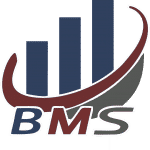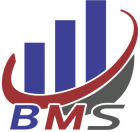ISO 17025 Lab Accreditation
Introduction:
ISO/IEC 17025 is the international standard that sets out the general requirements for the competent, impartial, and consistent operation of laboratories. It specifies the activities that must be included in laboratory operations to promote confidence in its ability to produce valid and consistently reliable testing, calibration, and sampling results.ISO/IEC 17025:2017 is the current, revised standard. The standard was published with collaboration between the International Organization for Standardization (ISO) and the International Electrotechnical Commission (IEC). Whereas certification according to ISO 9001 or ISO 14001 is the recognition that an effective management system is in place, ISO/IEC 17025 includes recognition of the technical competence of laboratories. Accreditation is a formal declaration by an Accreditation Body, after assessment and confirmation, that a laboratory is effective in meeting the requirements of ISO 17025 to perform tests according to its accredited scope.
The standard and accreditation are used by independently owned and operated laboratories, as well as those that are part of larger organizations, irrespective of the industry and size, which are involved in sampling or measurement activities. This includes regulated government and public sectors, as well as non-regulated sectors. ISO/IEC 17025, together with ISO 9001, is the basis for ISO 15189, which specifies particular requirements for competence and quality, as well as accreditation of medical laboratories.
Benefits of ISO 17025 Impelemtation / Accredittion:
The benefits range from strategic, to external business, to internal improvement. A few are highlighted here:
Increasing customer confidence. Accreditation to ISO/IEC 17025:2017 demonstrates that a laboratory is capable of providing consistently valid results, that the individuals performing the work are competent, and that all accredited measurement results can be traced back to the International System of Units (SI) or appropriate references. This is the primary objective for your customers so that results are accepted between countries.
Creating a proactive risk-based business and quality culture, not reactive. Defined activities, policies, and quality objectives are the foundation for the strategic direction of the organization. A culture of risk-based thinking drives cost-effective operations and evidence-based decision making. The laboratory must plan actions to address risks and drive improvements and ensure that major quality risks related to tests and calibrations are known and controlled (carried out the same way every time).
Assuring your laboratory’s creditability. Your test and calibration methods must be reviewed and audited to ensure that you are using the latest technology and documentation available. Assessment by a third-party accreditation body verifies that tests and calibrations are done correctly by trained laboratory professionals.
Creating an environment of professionalism and pride. A third-party assessment, in which auditors look over your shoulder and examine all of your work, is tough – but, once it’s over, the auditee will feel a sense of accomplishment and pride. Third-party accreditation provides a sense of pride for the entire organization.
Your advantages in working with us:
- Security in planning and execution at an individual fixed price
- Compact, unbureaucratic, and flexible approach
- Fast implementation through years of audit expertise
- Expert Consultants

